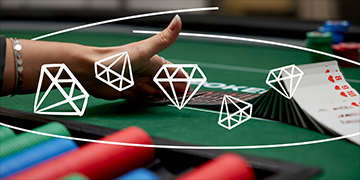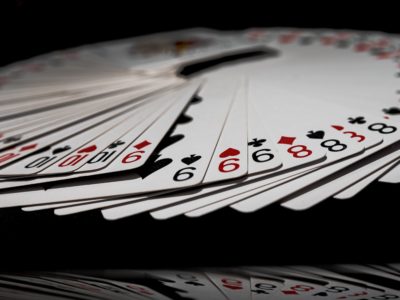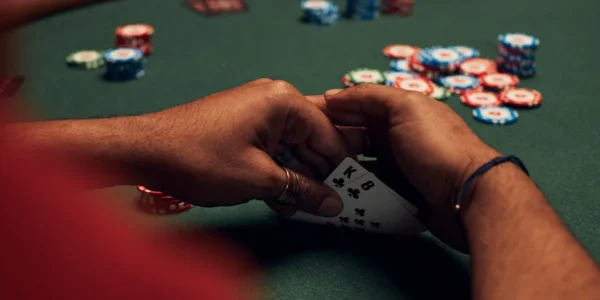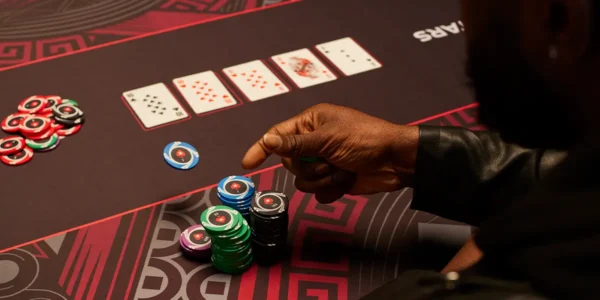How to avoid overconfidence at the tables
A certain amount of confidence tends to get you a long way when it comes to any endeavour in life.
In poker, you want to have a well-founded confidence that you are making the best decisions possible given your knowledge and skill level. This will help you to navigate tough situations and pick out profitable spots to make moves.
If confidence turns into overconfidence, however, mistakes and complacency can creep into your game.
Why is overconfidence bad?
Overconfidence in poker manifests as an unwarranted belief that you can easily outplay opponents. Or an unrealistic expectation that you’ll always win.
This might be based on a genuine skill level, but overconfidence will quickly degrade the quality of your play. And lead to poorer decision making. As the quality of your play declines, so will your win rate.
If not kept in check, this can become a vicious cycle. You hit peak skill levels or win a big tournament, but the overconfidence that follows can prevent you from gaining momentum.
Overconfidence can lead to several leaks and weaknesses in how you play poker, such as:
Underestimating opponents – If you’re feeling overconfident, you’ll underestimate other players. This can cause you to stop weighing up all the information and stop putting the energy into making great decisions. If you did have an edge, you’ll quickly lose it.
Taking unnecessary risks – Overconfidence can lead directly to errors in play. You’ll take unnecessary risks, make obnoxious bluffs, or take fancy betting lines in the belief that you deserve to win the pot. Or that you can simply outplay opponents.
Inability to see own mistakes – Being overconfident can cause you to struggle to see or accept your own mistakes. Instead you might blame bad luck or the other player’s foolishness. With this attitude, there’s no point taking a step back to analyse your gameplay. As a result you’ll miss opportunities to grow.
Mental exhaustion – Mentally, overconfidence is going to lead to disappointment. Even the best players in the world are going to lose pots when bad beats happen. And even if you’re a proficient player you’ll run into tougher competition every now and then.

Knowing where overconfidence comes from
It’s unlikely (although not impossible) that brand new players, or those who are learning the basics of poker, will feel overconfident at the tables. Overconfidence is more likely to come at times when you have overcome hurdles, regularly beat the games you play, or are on a winning streak.
Beating the competition or even winning games because of a hot run is an exciting feeling and one that should be celebrated. It’s nice to feel that boost of confidence and to know that you can win. It’s only when the confidence gets out of hand and becomes overconfidence that it’s a problem.
If you are consistently beating the level that you are playing, this can lead to a kind of overconfidence mixed with complacency. You’re no longer taking the games or the other players seriously, which is a recipe for disaster.
Ironically, then, it’s the times when you are winning that you need to keep an eye out the most to avoid overconfidence at the tables. If it arises, aim to spot it and change your mindset before it knocks your results.
Stay humble and keep learning
When it comes to avoiding overconfidence at the tables, the first job is to spot it in the first place. Doing so, by noticing either your attitude or the mistakes we talked about earlier, will allow you to switch your mentality. You’ll avoid bad habits and focus on making the best possible decisions.
You’ll quickly lose your edge over the field if you underestimate opponents and overlook factors in the hand. So, refocus on the poker and take each player seriously – using any notes you have on them to make more informed decisions.
Developing your poker knowledge and skills will also keep your confidence in check. Look for opportunities to analyse pots and run back hands to see if you could have played it better.
Whatever your approach to poker and however skilled you are, you have never mastered the game. Nobody has. There’s always more to learn and always opportunities to develop and grow as a player.
View Other Blogs































